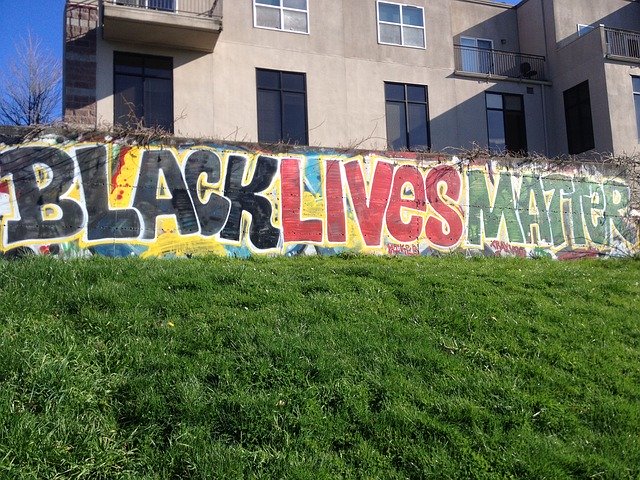NI: Black Lives Matter protesters will not be prosecuted

Black Lives Matter protesters facing charges under Covid-19 regulations have been told they will not be prosecuted.
The Public Prosecution Service (PPS) said it had concluded that the test for prosecution was not met in respect of any of 14 suspects on evidential grounds.
The decisions relate to three individuals reported in connection with a protest in Belfast on 3 June 2020, seven individuals in connection to a protest in Belfast on 6 June 2020, one individual in connection to both Belfast protests, and three in connection with a protest in Derry on 6 June 2020.
Assistant director Martin Hardy said: “Decision-making on this file included consideration of a range of complex and novel legal issues arising from the coronavirus regulations in place at the time of these protests and relevant human rights considerations.
“It also involved a careful analysis of the particular circumstances of these protests and the conduct of the individuals reported.”
He added: “The evidence received from police was subjected to an impartial and independent application of the test for prosecution, in line with the PPS code for prosecutors. The prosecution team was also assisted by advice received from independent senior counsel.
“It was concluded that, in respect of each of the 14 individuals reported, there was no reasonable prospect of conviction for any offence. This was on the basis that the evidence would allow the suspects to successfully raise the statutory defence of reasonable excuse. In these circumstances the test for prosecution was not met.”
Among the factors which were relevant to the application of the reasonable excuse defence were:
-
The potential breadth of the reasonable excuse defence and the need to interpret the regulations and the defence in accordance with rights guaranteed by Articles 10 (freedom of expression) and 11 (freedom of peaceful assembly) of the European Convention of Human Rights.
-
The fact that the gatherings involved protests relating to a matter of important social concern, were peaceful, and were organised in a manner that sought to minimise any risk of transmission of the virus. For example, steps taken at the different protests included encouraging social distancing by arranging the attendance of stewards, marking the ground with chalk squares and delivering relevant announcements by loud speaker. Protesters were also encouraged to attend in smaller groups of no more than six; and masks and hand sanitiser were also made available.
-
The presence of provisions within the regulations which created, in certain respects, a lack of legal clarity as regards what activity would be lawful. These included the absence of any definition of a “gathering” or what constituted “outdoor activity”; the absence of any provisions (at that time) dealing specifically with gathering for the purposes of protest; the tension within the provisions that allowed unrestricted numbers to gather for the purpose of an outdoor film, live concert or theatre performance; and the fact that the reasonable excuses specified within the Regulations were non-exhaustive.
-
Issues in relation to the proportionality and consistency of the policing approach to different protests, as set out in a report published by the Police Ombudsman for Northern Ireland pursuant to section 62 of the Police (Northern Ireland) Act 1998.
Mr Hardy said: “The PPS can only bring a case before a court when, after a thorough consideration of all relevant matters, it is concluded that the evidence provides a reasonable prospect of conviction.
“The conclusion reached in relation to these 14 individuals – who were seeking to safely exercise their right to freedom of peaceful assembly and expression on an important social issue – is that there is no prospect of conviction in relation to any offence.”







